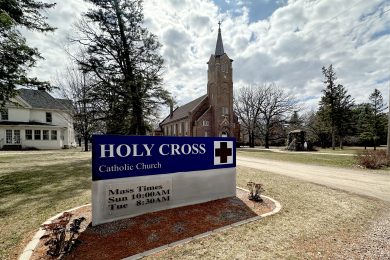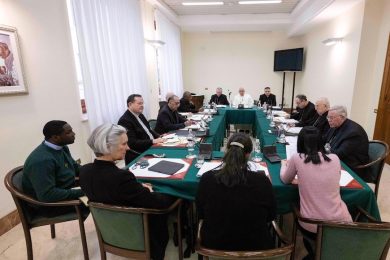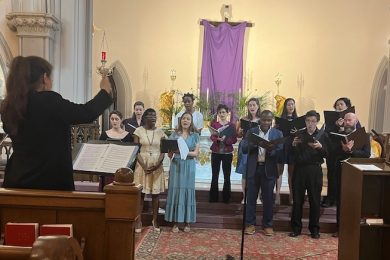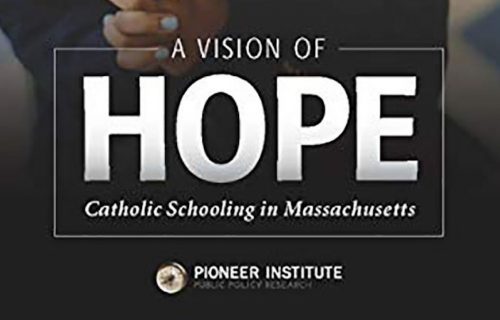By Allan F. Wright | Catholic News Service
“A Vision of Hope: Catholic Schooling in Massachusetts,” edited by Chris Sinacola and Cara Stillings Candal. Pioneer Institute (Boston, 2021). 190 pp., $12.95.
Drawing from the influence and writings of St. John Paul II, editors Chris Sinacola and Cara Stillings Candal describe opportunities and challenges of attaining the goal of a vibrant Catholic education for students in Massachusetts.
According to their research, “Catholic schools in Massachusetts must focus on the characteristics that make them academically successful and distinguish them from traditional public schools but must also seek new models and governance structures that will help them achieve financial sustainability.”
Catholic schools have changed drastically since the 1960s due to the declining number of Catholics in urban areas, a dramatically decreased number of women religious who had done the bulk of the teaching at little cost to the diocese and the subsequent challenges of paying lay faculty members a just wage.
Statistically, a Catholic-school-educated child does better across the board than the public-school student, which is reason to hope that the Catholic school model provides long-term benefit to the student, family and by extension the surrounding community.
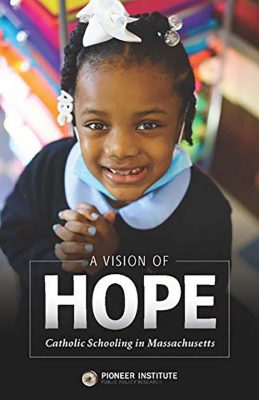
The issue of public support is always a question when considering the value of Catholic schools in any area. Catholic school parents pay tuition as well as taxes to support schools their children do not attend, saving state and local taxpayers hundreds of millions of dollars a year.
The political arena in which advocates seek justice for parents and children who desire a Catholic education is always contentious, despite the success of the Catholic school model. Powerful public school unions and lobbyists are always a force to be reckoned with and those who advocate for Catholic schools have had limited success.
Considering this contention, the book examines the Cristo Rey Catholic school model which began in Chicago in the early 1990s. Founded by the Jesuits, Cristo Rey schools sought corporate sponsorship for student tuition and offered work-study programs. The feedback was that the model made the students feel like adults. “They are treated like an adult. They feel like they’re part of something and they’re taken into account.”
This model, with all its successes, high graduation rates and students receiving college scholarships, received a cold reception from existing Catholic schools because they often drew enrollment from those schools.
The reader will be well versed in the various models of Catholic education and immersed in the issues that prevent federal spending of special education funding for private schools, as well as the unique character of urban areas in Massachusetts which present distinctive challenges to Catholic education.
This book is recommended for those who seek the recent history of Catholic schools in Massachusetts and the models of delivering a Catholic education and ways to navigate the political landscape in order to succeed.
Wright is principal of Koinonia Academy in Plainfield, New Jersey.



